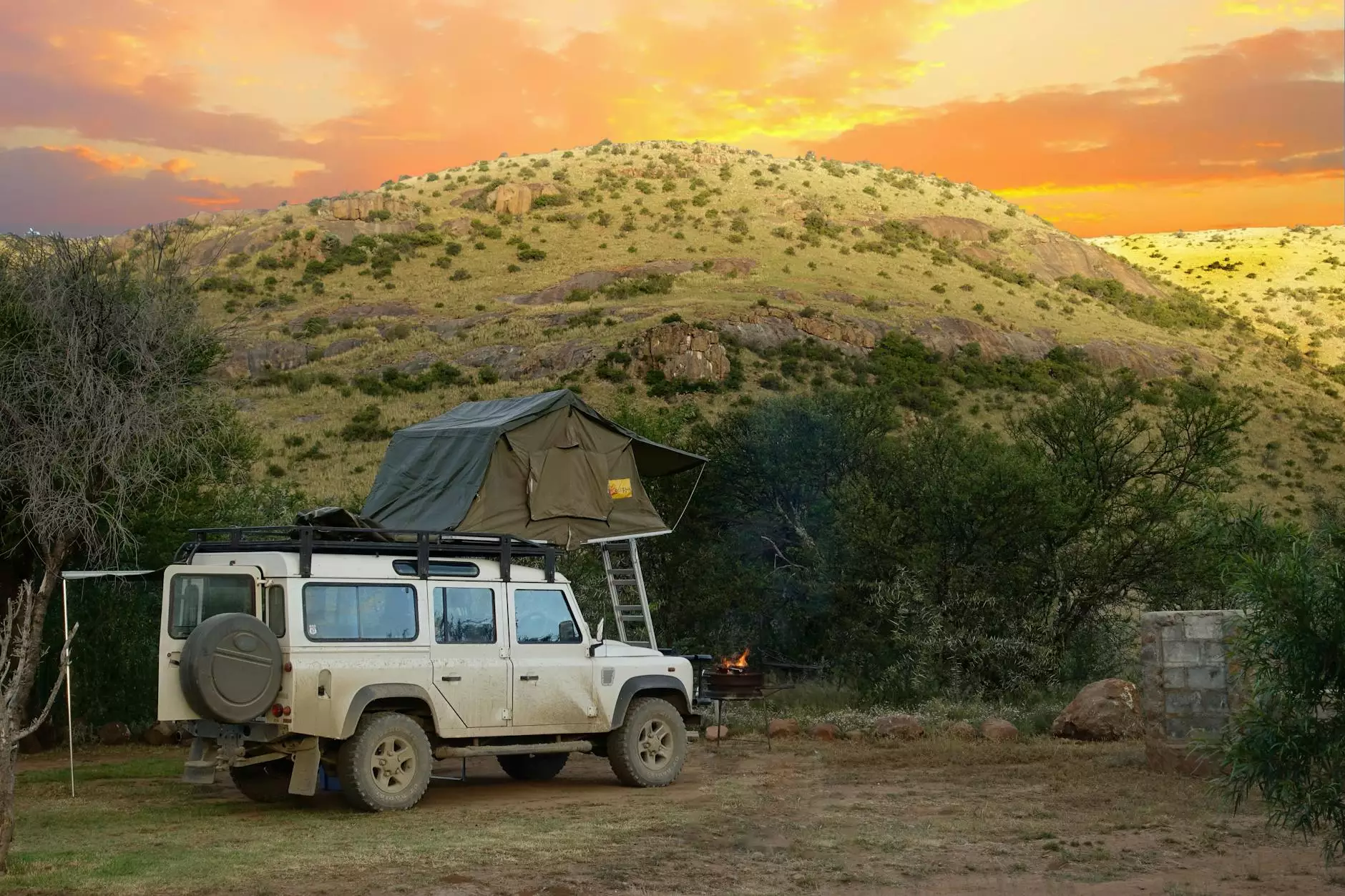The Ultimate Guide to Jeep Wheels and Tires for Off-Road Adventures

If you're an avid off-roading enthusiast, you understand the importance of the right wheels and tires for your Jeep. Without the proper setup, your vehicle's performance on rugged terrains can be severely hampered. This comprehensive guide will delve deep into everything you need to know about Jeep wheels and tires, helping you make informed choices that enhance your off-road experience.
Understanding Jeep Wheels and Tires
Before we dive into specifics, let's understand what makes Jeep wheels and tires unique and crucial for your vehicle's performance.
- Wheels: Jeep wheels are specifically designed to support the weight of the vehicle while allowing for larger tires that are essential for off-roading.
- Tires: Jeep tires are engineered to provide traction, stability, and durability on various terrains, including mud, rocks, and sand.
Having the right combination of wheels and tires will allow your Jeep to tackle the toughest terrains with confidence and ensure safety during your adventures.
Types of Jeep Wheels
When it comes to Jeep wheels, there are several types, each with its advantages and disadvantages:
1. Steel Wheels
Steel wheels are known for their durability and affordability. They are often heavier than aluminum wheels, making them less ideal for high-speed driving but perfect for off-road handling.
- Pros: Durable, affordable, easy to repair.
- Cons: Heavier, prone to rust if not treated.
2. Aluminum Alloy Wheels
Aluminum wheels are lighter and can enhance fuel efficiency, making them ideal for daily driving. They also provide a wider range of designs and finishes.
- Pros: Lightweight, stylish, resistant to rust.
- Cons: More expensive, can be prone to bending.
3. Beadlock Wheels
Beadlock wheels are designed to keep the tire's bead seated on the wheel even at lower pressures, making them excellent for extreme off-roading conditions.
- Pros: Enhanced grip, excellent for low tire pressure performance.
- Cons: Heavier, more expensive, and require additional maintenance.
Choosing the Right Tires for Your Jeep
Selecting the right tires for your Jeep is equally critical. Here are the most common types of tires used in off-roading and their specific applications:
1. All-Terrain Tires
All-terrain tires are versatile choices for Jeep owners who seek a balance between on-road comfort and off-road capability. They feature a tread pattern that offers decent traction on various terrains.
- Best for: Daily driving with occasional off-road adventures.
- Examples: BFGoodrich All-Terrain T/A KO2, Goodyear Wrangler All-Terrain Adventure.
2. Mud-Terrain Tires
If you're planning to tackle deep mud and other loose surfaces, mud-terrain tires are a fantastic choice. Their unique tread patterns and larger voids ensure optimal grip in muddy conditions.
- Best for: Extreme off-roading in mud and sand.
- Examples: Nitto Trail Grappler, Mickey Thompson Baja MTZ.
3. Rock Crawling Tires
For serious rock crawlers, specialized tires offer the traction and durability needed to navigate harsh rocky terrains. These tires often feature reinforced sidewalls to prevent punctures.
- Best for: Rock crawling and technical off-road conditions.
- Examples: BFGoodrich Krawler TA, Maxxis Trepador.
Finding the Right Size
Choosing the right size of Jeep wheels and tires is not just about aesthetics; it significantly impacts performance. Here’s how to ensure you select the right size:
- Consult Your Owner’s Manual: Start by checking the recommendations provided in your Jeep’s owner’s manual.
- Consider Wheel Well Clearance: Ensure there is enough clearance for the tires, especially if you plan on lifting your Jeep.
- Think About Gear Ratios: Larger tires can affect your Jeep’s gear ratios, impacting acceleration and fuel economy.
Maintenance Tips for Jeep Wheels and Tires
To maximize the lifespan and performance of your Jeep wheels and tires, regular maintenance is essential. Here are some effective maintenance tips:
1. Regular Inspections
Inspect your tires regularly for any signs of damage, such as cuts, bulges, or worn tread. Early detection can prevent more significant issues.
2. Proper Inflation
Always keep your tires inflated to the recommended pressure. Under-inflated tires can lead to poor handling and increased wear, while over-inflated tires can reduce traction.
3. Rotation
Rotate your tires every 5,000 to 7,500 miles to ensure even wear. This step is critical, especially if you frequently drive off-road.
4. Alignment and Balancing
Keep your wheels properly aligned and balanced to enhance handling and reduce uneven wear on your tires. If your Jeep starts pulling to one side, it's time for an alignment.
Where to Buy Jeep Wheels and Tires
When it comes to purchasing your Jeep wheels and tires, the best options often come from specialized retailers. Here are a few recommendations:
- Local Auto Parts Stores: These often carry a variety of options suited to different vehicle needs.
- Online Suppliers: Websites like offroad-zone.com offer a vast selection and often better pricing.
- Specialty Off-Road Shops: Look for shops dedicated to off-roading that can provide expert advice and assistance in selection.
The Importance of Quality
Investing in quality Jeep wheels and tires is paramount. High-quality options not only enhance your Jeep’s performance but also provide better safety margin and durability, especially during off-road excursions. Always prioritize quality over cost to enjoy peace of mind during your adventures.
Conclusion
Choosing the right Jeep wheels and tires is essential for optimizing your off-road adventures. By understanding the different types available, considering aspects like size and quality, and adhering to proper maintenance practices, you ensure that your Jeep is always ready for the path less traveled. Whether you are scaling rocks, plowing through mud, or cruising along the beach, equipped with the right tires and wheels, your Jeep can handle it all. For unparalleled selection and quality, make sure to visit offroad-zone.com for all your automotive needs.









